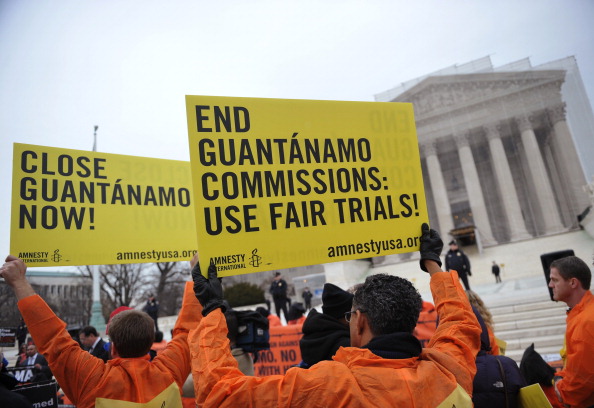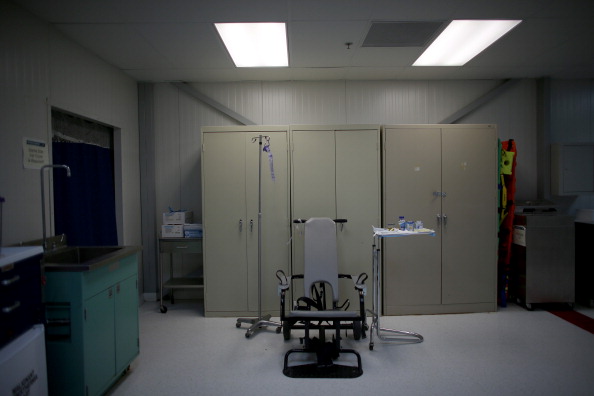
By Saira Khan, Intern at Amnesty International USA’s Security & Human Rights Program
I was born and raised in New York. My mother is originally from Pakistan and my father is from India. My parents and I are Muslim. From a young age, I had the impression that most Americans did not know much about my culture or religion.
During the September 11 attacks, I was in fifth grade. I can distinctly remember a classmate calling me a terrorist in the following days. While I knew that he did not realize the gravity of his accusations, I also understood that his words represented a new perspective held by many Americans regarding Muslims. As I have gotten older, this stereotypical outlook has been reinforced through my personal experiences.
Many Americans assume that all of the prisoners at Guantanamo must be guilty of something, and therefore are deserving of the conditions in which they live. The reality is that most detainees in Guantanamo Bay detention facility have never been charged, and none fairly tried. Yet they are all still being punished. I’m concerned that the passive acceptance of Guantanamo in our country is a manifestation of latent discrimination toward Muslims. This is a travesty, especially for America, the supposed “land of the free.”
Shaker Aamer, a British resident who is one of the dozens of detainees “cleared for transfer,” has been held at Guantanamo Bay since Feb. 14, 2002, and has yet to be charged for a crime. The British government has, on numerous occasions, called for him to be released and returned to the United Kingdom. Last month, British Prime Minister David Cameron raised Aamer’s case with President Barack Obama at the G8 summit.
A husband and father of four children, Aamer, along with many other detainees, has resorted to hunger strikes in order to attract attention to their unheard cases. Aamer is reportedly also one of the detainees being force-fed at the facility, a tactic that the International Committee of the Red Cross equates with ill-treatment.

President Obama can and should resolve Aamer’s case immediately. Like any other detainee, Aamer should either be charged and fairly tried or released. Given his status as “cleared for transfer,” it is evident that the U.S. authorities have no intention of prosecuting him. President Obama should heed the U.K. government’s call to transfer Aamer home to London. He should be able to rejoin his family and children, one of whom he has never met.
Congress also has an important role to play. Instead of hindering progress toward closing the detention facility, our elected officials should support the rule of law. As a resident of New York, I am particularly disappointed with Sen. Charles Schumer’s record on Guantanamo. However, he can redeem himself this year by voting for the Guantanamo provisions in the National Defense Authorization Act for fiscal year 2014 as approved by the Senate Armed Services Committee.
In that same fifth-grade class where I was labeled a terrorist, I was also taught that this country was founded upon the principles of justice and democracy. Indefinite detention and force-feeding are fundamentally incompatible with these principles and do not reflect the values on which this country was established.
I learned that in America, all are innocent until proven guilty; everyone deserves the right to a fair trial; and no one should fear torture, or other ill-treatment, at the hands of our government. Some have argued that we need the detention center at Guantanamo to keep us safe, but the notion that we must choose between security and justice is a misguided one. Our security is best ensured when government, including our own, respects the human rights of all people. Trading away the rights of a few will only put us all at greater risk.
